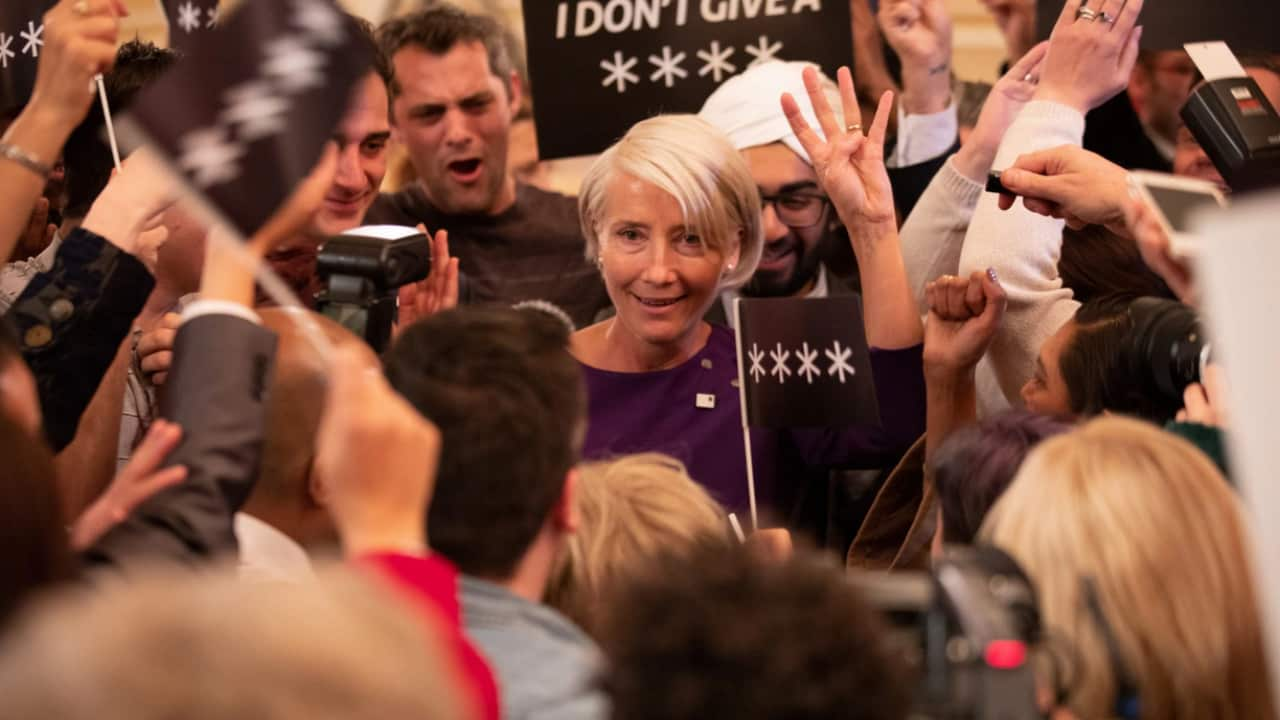When I first came out of the anxiety closet, last year, I didn’t so much peep out, gingerly, between a crack in the door as I did saunter out, with the confident mien of talk show host Stephen Colbert.
“Oh, I have anxiety,” I’d say, to friends – even new ones – all but casually popping a peanut in my mouth afterwards.
Some days, I even find myself now having to stuff those words back in my mouth, for fear of over-sharing.
But, most outrageously, for me, I mentioned in a national magazine article I wrote last month about going grey, that I’d recently overcome a lifetime of chronic anxiety.
I mentioned in a national magazine article I wrote last month about going grey, that I’d recently overcome a lifetime of chronic anxiety.
Before last year, I would no sooner have included that admission than I would have considered moving to Afghanistan, for fear of damaging my professional reputation.
That, and the fact that I thought if anyone knew, I’d be found repellant.
So, for 40 or so years, I used every trick I could to hide from everyone the fact that my mind was a non-stop, mile-a-minute log roll, constantly churning through possible catastrophes about the safety of my children, and myself.
Though my energy levels could sometimes best be described as narcoleptic – my fear of my children being harmed prevented me from accepting any offers from others to take them anywhere, which meant I was with them, almost non-stop, whenever I wasn’t at work - I’d stride towards my friends hanging around our kids’ classroom, at school-pick up, and say, beaming: “I’m bringing my Z-game, today, ladies!” Then I’d throw them an ironic and outsized wink.
Five minutes later, walking out of the school in full donkey mode, weighed down with children’s backpacks and whining, the smile would slip off my face, like a landslide. My cheeks would feel sunken, and I’d have the dead eyes of a soldier in a foxhole.
The car ride home did not lift my mood. By the time we got home, it could often best be described as a cross between Dennis Hopper and a Play School presenter. This was more than a little disorienting to my children.
My daughter recently confided, long after the fact, that the reason she sometimes didn’t like me hugging her is because I was sometimes “scary”.
Still, for decades, I couldn’t ask for help, and didn’t realise how badly I needed it.
Still, for decades, I couldn’t ask for help, and didn’t realise how badly I needed it. After all, I never missed a work deadline (writing energises me), and I’ve always been very social (ditto). Surely my children – to whom I’ve always showered affection and encouragement - knew how much I loved them?
I also believed I’d be relationship napalm, seen as needy, if I were to reveal to my friends what went through my mind. And if my family knew? Surely this would undermine my credibility in any future conversation or disagreement.
There is, it seems, a growing appetite for honesty about mental health issues.
When cult American accessories line ban.do released gold-tone script necklaces that read “Anxiety” and “Depression” last year, they sold out. (Ban.do’s founder Jen Gotch frequently posts, to her 238,000 Instagram followers, about her struggle with clinical depression, and was – as a result – recently labeled “The Most Important Person On Instagram Right Now”.)
Public figures, too, have been opening up with greater regularity.
“I have anxiety,” Euphoria actress Zendaya told American Elle magazine last month. “I already know after this interview is over, I’m going to spiral about it for weeks.”
I smile at seeing people in the public eye speak honestly about such struggles, because of the power of these disclosures to destigmatise mental health issues,which, according to many estimates, affect one in five people.
But my own sudden desire for self-disclosure, after a lifetime of obfuscation, is decades in the making.
But my own sudden desire for self-disclosure, after a lifetime of obfuscation, is decades in the making.
My father suffered from mental illness in isolation. I only learned about his struggle after he died, when my mother told me. He felt ashamed, she said, about his condition, which – to this day – I cannot name. All I know is that he had a “chemical imbalance” and the name of his medication, which all but eradicated his explosive temper. Because of his shame, though, he only got a hold of this medication in the last eight or nine years of his life.
So, after a recent penny drop moment, when I decided that I would no longer allow shame to have a place in my life - and realised that I needed medication- I became motivated to do anything in my power to help save others from experiencing the same pain.
Meanwhile, the response to my admission in my article was swift.
“I wonder when you tell people about your anxiety, how many say they have it too?” wrote one friend.
So far, four - one, a friend who I’d never have suspected could possibly relate.
When I next saw him, we just stared at each other, wide-eyed, giddy, and just a little awkward. I bounced on the balls of my feet with the nervous energy of a boy about to ask a girl to dance at a primary school social. He gave me a wobbly smile.
It’s been one of my favourite moments this year.
Samantha Selinger-Morris is a freelance writer. You can follow her on Twitter






